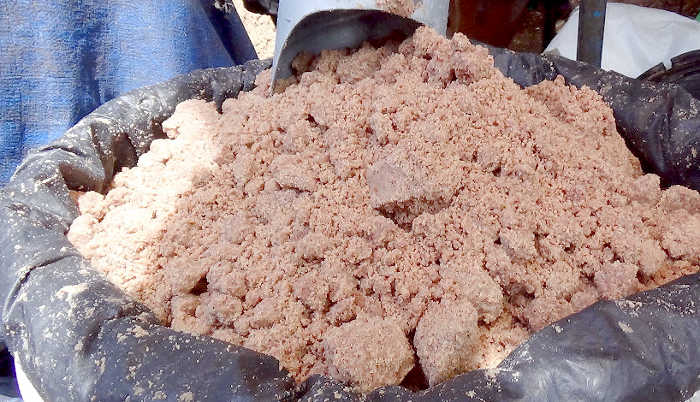Groundnuts are regarded as the second most important legume sauce consumed in Uganda after beans. The sauce is consumed by all ethnic groups, even though it’s prepared slightly differently.
Modernity has however changed the way our parents used to prepare ground-nut sauce – from the use of a wooden mortar, most of us these days prefer to buy milled and ready-to-prepare paste from markets, supermarkets and corner shops. In the process of trying to ease our lives, we have fallen victims of mischief and adulteration of our favourite dish.
This has come about because makers of the paste usually mill left-over g-nuts that are contaminated with toxins that are produced by fungi. As experts have found out for many years, the toxins damage the liver and in high concentrations can cause instant death. Prof. Archileo Kaaya, the Head of the Department of Food Science and Technology at Makerere University, conducted a study and found that more than 70 percent of all processed ground-nuts sold in Owino, had far above the acceptable levels of aflatoxins in it.
Most importantly perhaps, according to Prof. Kaaya, who recently won an award for work on aflatoxin control in Africa is that the levels of aflatoxin contamination in g-nut paste has not caused instant death, but rather causes chronic or gradual illness that makes the toxin a slow poison.
It is actually the slow-killing nature of aflatoxins found in g-nut paste and other foods that we eat a lot, that we need to worry more about because of the irreparable damage it causes to the liver, including causing cancer.
Responses by some members of the public, including radio presenters about a news story warning about the danger of aflatoxin, exposed the fact that people might brush this warning aside, just because they “have enjoyed the delicacy since childhood and have not died.”
The greatest danger associated with low-dose consumption of aflatoxin, as the case is with taking of g-nuts and other foods, is the chronic or gradual nature of its side-effects – in the form of liver cancer, stunted growth, compromised immunity.
Many people are not adequately informed that the sharp increase in the number of cases of liver cancer in Uganda, is closely linked to increased consumption of aflatoxins.
This week, the Ministry of Agriculture, with support from the African Union’s Partnership for Aflatoxin Control in Africa (PACA) office, the USAID, launched the Uganda National Action Plan on Aflatoxin control.
The danger with most of Uganda’s plans arises from poor implementation and there is cause to worry that this might befall similar fete.
But aflatoxin is simply too grave to leave it to government’s only devices. Each of us must start to be vigilant by ensuring that we either process our own g-nuts from nuts that are fresh and not mouldy.
As Professor Kaaya, warns; buying g-nut source from shops where it remains exposed to air, allows the fungi to multiply and further cause the build up of poison.








